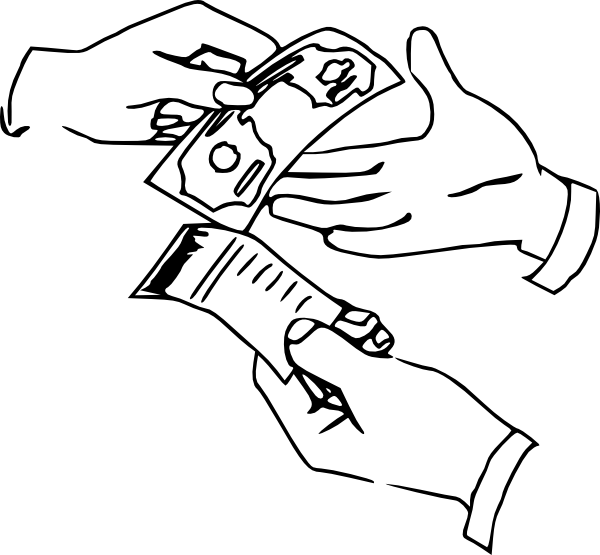The Office of Inspector General (OIG) tied home health agencies and physician as both liable in violating the Federal anti-kickback statute when agencies paid, and physicians received payment for home health referrals.
Here's what the OIG's alert, published Wednesday, June 22, 2016 says:
Alert: Improper Arrangements and Conduct Involving Home Health Agencies and Physicians
Recent investigations and Office of Inspector General (OIG) studies have found that home health services are vulnerable to fraud, waste, and abuse. The Federal government is stepping up its enforcement efforts in this area. In the past year, the Federal government has obtained criminal convictions and reached civil settlements with several home health agencies (HHAs), individual physicians, and heads of home-visiting physician companies that defrauded Medicare by, among other conduct, making (or accepting) payments for patient referrals, falsely certifying patients as homebound, and billing for medically unnecessary services or for services that were not rendered.
The government alleged that HHAs violated the Federal anti-kickback statute1 by paying physicians, either directly or indirectly, in return for their referrals of Medicare beneficiaries to the HHAs for home health services. The government also alleged that the physicians violated the Federal anti-kickback statute by soliciting or receiving payments, either directly or indirectly, from the HHAs in return for referring Medicare beneficiaries to the HHAs. In some instances, these payments were disguised as compensation arrangements for services provided, such as payments purportedly for serving as the medical director of an HHA.
HHAs and physicians that wish to enter into compensation arrangements for services provided must ensure that those arrangements and the payments under them are fair market value and commercially reasonable in the absence of Federal health care program referrals. Although many compensation arrangements are legitimate, a compensation arrangement may violate the Federal anti-kickback statute if even one purpose of the arrangement is to compensate a physician for his or her past or future referrals of Federal health care program business. Payments made (or received) to induce (or in return for) referrals, or for arranging for referrals, potentially raise a number of concerns, including corruption of medical judgment, patient steering, overutilization, increased costs to Federal health care programs, and unfair competition.
In addition to the alleged Federal anti-kickback statute violations, the government alleged that HHAs, physicians, and heads of home-visiting physician companies violated other Federal laws, including the health care fraud statute2 and the statute prohibiting false statements relating to health care matters.3 For example, the government alleged that HHAs billed Medicare for medically unnecessary nursing services provided to patients who were not confined to the home, and that the home-visiting physician companies upcoded patient visits (i.e., billed at a level higher than warranted) and billed for care plan oversight services that were not actually rendered. The government also alleged that the physicians falsely certified patients as confined to the home when they were not actually homebound. In OIG’s experience, the physicians participating in these schemes typically were not the Medicare beneficiaries’ primary care physicians, who often were unaware that their patients were receiving home health services. These types of fraudulent activities result in substantial additional costs to Federal health care programs.
HHAs must ensure that Medicare beneficiaries who receive home health services are confined to the home and require these services.4 OIG encourages HHAs and physicians to carefully evaluate the terms of any compensation arrangements they may have with each other, and to ensure that the home health services provided to Medicare beneficiaries are both reasonable and necessary.
Those individuals and entities that commit fraud involving Federal health care programs are subject to possible criminal, civil, and administrative sanctions. For more information on HHAs, see http://oig.hhs.gov/reports-and-publications/portfolio/home-health/.
If you have information about HHAs, physicians, or others engaging in any of the activities described above, contact the OIG Hotline at https://forms.oig.hhs.gov/hotlineoperations/ or by telephone at 1-800-447-8477 (1-800-HHS-TIPS).
1 42 U.S.C. § 1320a-7b(b).
2 18 U.S.C. § 1347.
3 18 U.S.C. § 1035.
4 A more complete description of the conditions that must be satisfied before Medicare will pay for home health services may be found in the Medicare Benefit Policy Manual, Chapter 7, Section 30, available at: https://www.cms.gov/Regulations-and- Guidance/Guidance/Manuals/downloads/bp102c07.pdf, which sets forth the Centers for Medicare & Medicaid Services’ policy regarding the implementation of sections 1814(a)(2)(C) and 1835(a)(2)(A) of the Social Security Act (42 U.S.C. §§ 1395f(a)(2)(C) and 1395n(a)(2)(A)).

